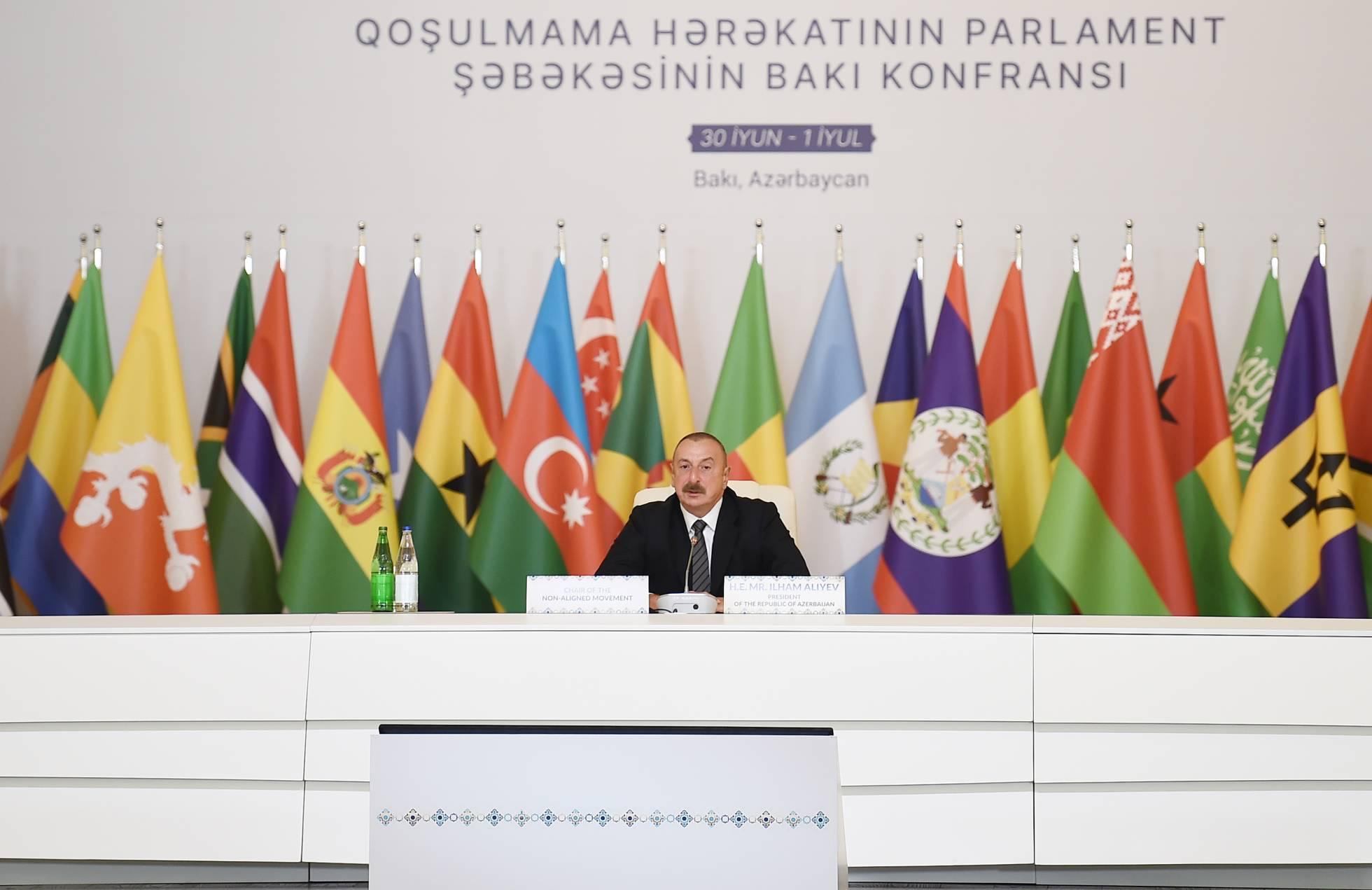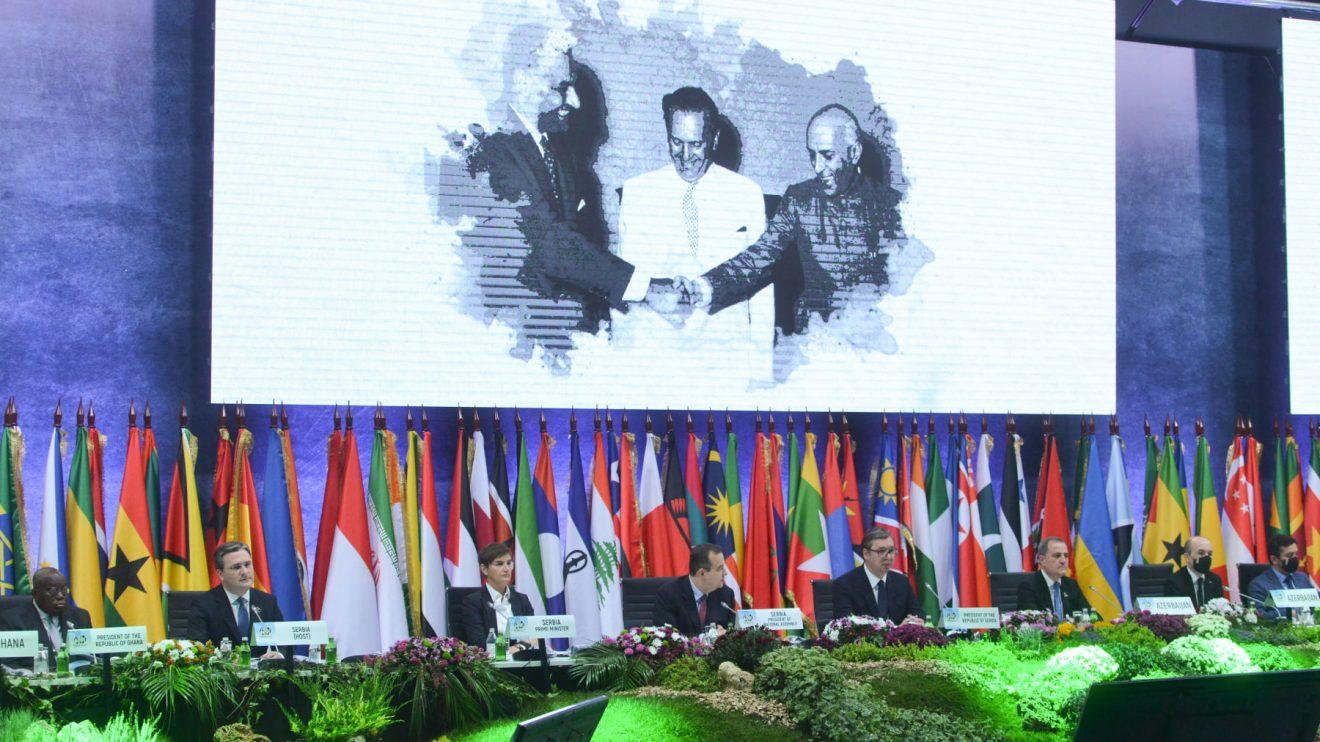Azerbaijan’s middle power credentials augmented NAM: Greater global reach and tangible support
Azerbaijan’s increasingly important role within the Non-Aligned Movement (NAM), in addition to enabling it to project greater power beyond the confines of its presumed reach and propound global initiatives, entitles the largest South Caucasian nation to the tangible political support of the member states. Baku has also taken upon itself a proactive role in the institutionalisation of the NAM.
“Azerbaijan has emerged as a ‘middle power,’ with strategic links extending not only to Europe and the US, but as far as Australia”, stated Robert Cutler, Fellow at the Canadian Global Affairs Institute, in his recent piece for the Asia Times. This indubitably judicious assessment is based on a considerable increase in the country’s standing, becoming a force pursuing a multi-vectored policy and rearranging the world around itself in such a way that its centrality, as a hub of communications, becomes indisputably indispensable.
Institutional development
The NAM is critical to Azerbaijan’s ambition to punch above its weight. President Ilham Aliyev’s address at the Baku meeting of the NAM has reflected the heightened importance of institutional development.
The Parliamentary Network is just one of the Azerbaijani initiatives which has received the backing of NAM members. Baku will host the Youth Summit next month, subsequent to the creation of the Youth Network. Another successful initiative of Azerbaijan is the establishment of a NAM support office in New York. The President has also alluded to the future transformation of the NAM into an international organisation.
In our day and age, having a massive territory with a large population still amounts to something considerable, but is no longer a determining factor in defining a nation’s global clout. There is an array of complex circumstances, ranging from extra leverage gained by virtue of an advantageous geographical location and natural resources to possessing a strong military, highly developed economy and achieving representation in myriad international organisations.

Middle power capabilities
The condition of being a middle power, very much like being a great power, can be ascertained by means of a critical mass, which, if sufficient concentration of vital elements is present, may give rise to a particularly heightened standing.
Azerbaijan, as a nation which regained its independence in 1991, is a newcomer to the field of international contestation. Its emergence as a middle power is probably due to the past 10-15 years of steady growth, the critical victory in the Second Karabakh War being that very finishing apogee enabling us to view its present credentials in elevated terms.
Azerbaijan’s membership within the NAM, the second biggest forum of sovereign states after the United Nations, allows it to become a bigger voice internationally, for whilst defending and promoting the shared vision of the NAM at the UN and other fora, Azerbaijan finds itself as a player equipped with the resources to influence the global agenda and ultimately become a source for a change worldwide.
This role is of particular relevance at a time when the UN is in a state where it risks losing its relevance due to a set of various factors, most of which centre upon its perceived inability to safeguard world peace.
Azerbaijan has long espoused the reform of the power structures that lie at the heart of the UN's institutional core, calling for the change of the key tenets underpinning its present modus operandi in line with the principle “the world is bigger than five”. The NAM can, through its extensive membership, both influence the UN’s decision-making process and set in motion reform-oriented measures.
Global power projection
Accepted with open arms to the NAM in 2011, Azerbaijan subsequently became its chair in 2019, later being extended till 2023, which was a confidence vote in Baku’s credentials as a leading country. The assumption of this critical responsibility by Azerbaijan has enabled the NAM to be proactive in tackling global problems. On 4 May 2020, on the initiative of Azerbaijan as NAM chair, a High Meeting within the format of a contact group in response to COVID-19 took place and, as its continuation, a further proposal to the effect of having a larger debate at UN level was suggested by President Ilham Aliyev, which eventually received the support of 150 UN members.
A special session of the UN General Assembly, which took place in December 2020, was the result of the aforementioned initiative and firmly put Azerbaijan at the forefront of the fight against the global pandemic. The special session was also noteworthy, due to the fact that when it was proposed, the sovereign state that opposed it was Armenia, the recalcitrant approach of which amounted to nothing, rightly reasserting Azerbaijan’s moral footing.
As a chair of the NAM, Azerbaijan also raised the troubling issue of the “vaccine nationalism” expressed through the unfair distribution of vaccines between developed and developing countries. These efforts culminated in the adoption of the UN General Assembly resolution, initiated by Baku on behalf of the NAM, on equal, affordable, timely and universal access to vaccines.

Moment of reality-check: Tangible political support
The NAM provides Baku with tangible political and legal support globally. In relation to the former Armenian-Azerbaijani Nagorno-Karabakh conflict, the NAM has been an outspoken supporter of Azerbaijan, adopting numerous documents espousing and reasserting its territorial integrity.
The consolidated position of the NAM manifested itself in the clearest possible manner during the Second Karabakh War, when the three Security Council members that are also the beleaguered OSCE Minsk Group Co-chairs, sought to adopt a statement regarding the Nagorno-Karabakh conflict without making reference to the famous four resolutions of the UN Security Council itself passed in 1993 against the Armenian invasion.
The attempt failed miserably, due to the intervention of seven NAM members (also the non-permanent members of the UNSC), which insisted on the inclusion of the resolutions in question, which have long been the cornerstone of the international legal position as to the protracted conflict.
This episode was the moment of diplomatic reality-check for Baku; it behoves any fair-minded observer to accept that Azerbaijan has risen to the occasion at the time of need.
The NAM is and will continue to be a critical ingredient in Azerbaijan’s larger foreign policy design. Baku's central place within it is an indisputable testament to the ability of a nation with a relatively small size to be capable of influencing the international response far beyond its presumed reach. Furthermore, due to Azerbaijan’s pivotal and perilous location and history, remaining non-aligned provides it with the necessary scope for realpolitik.








